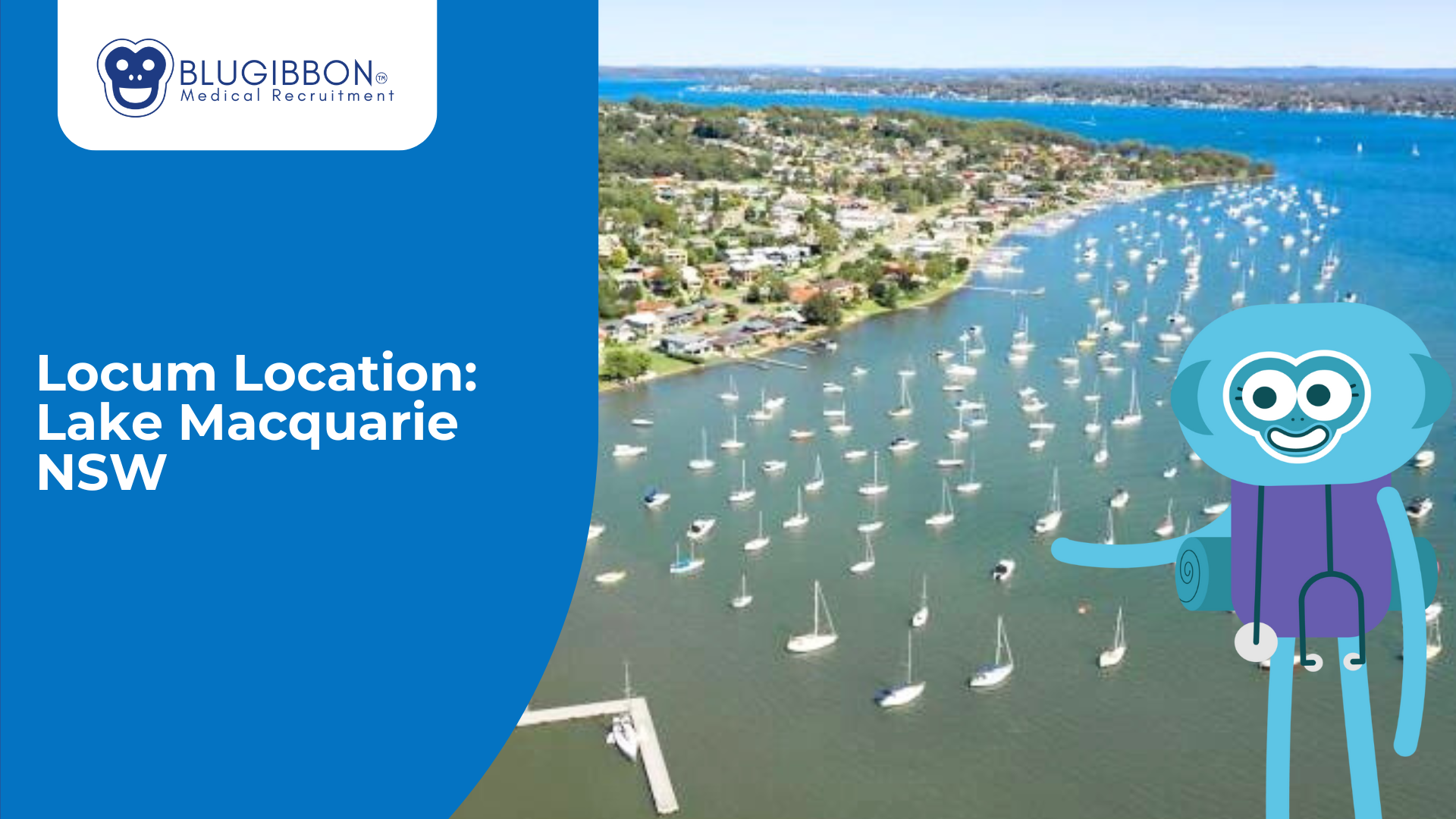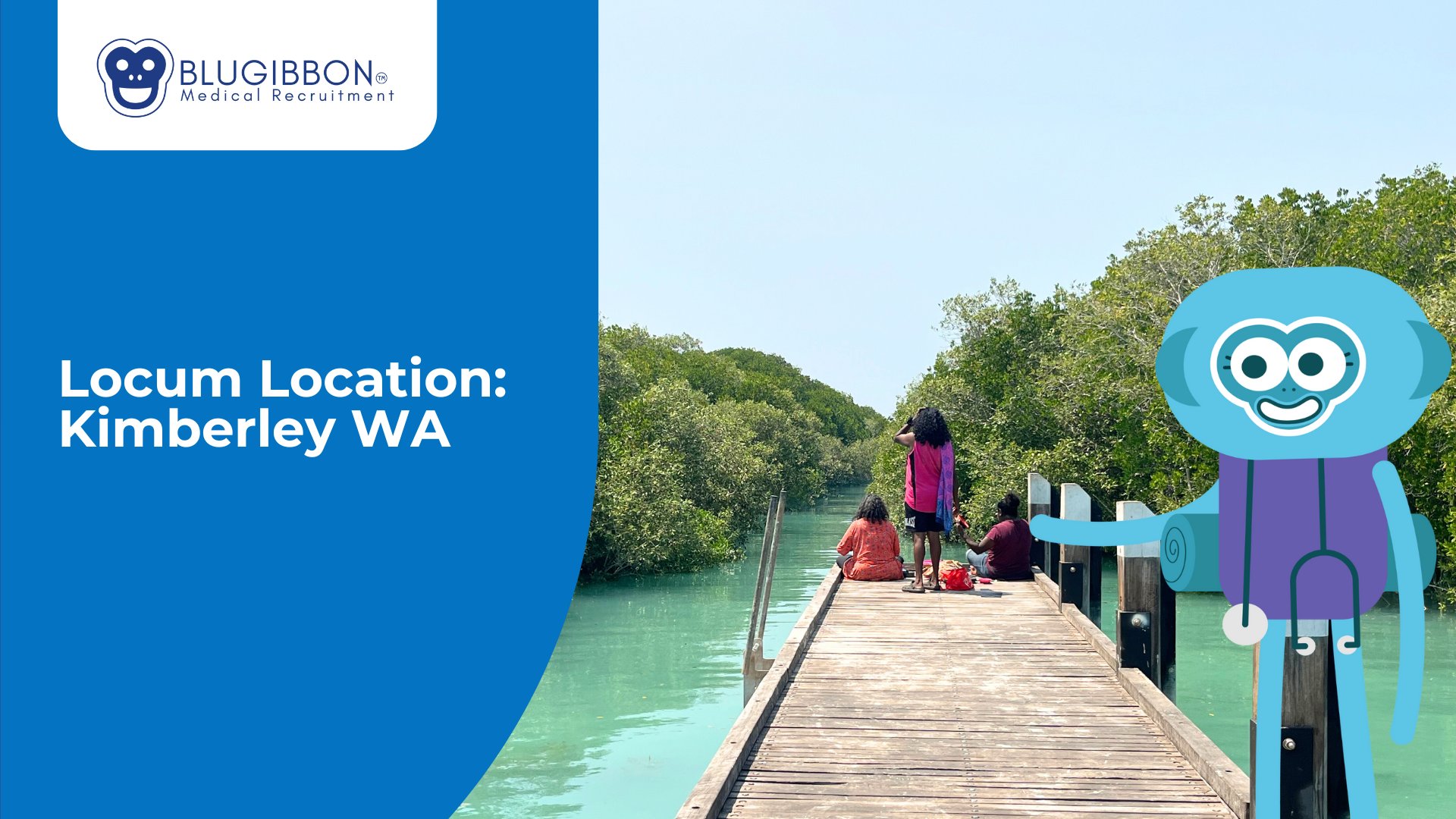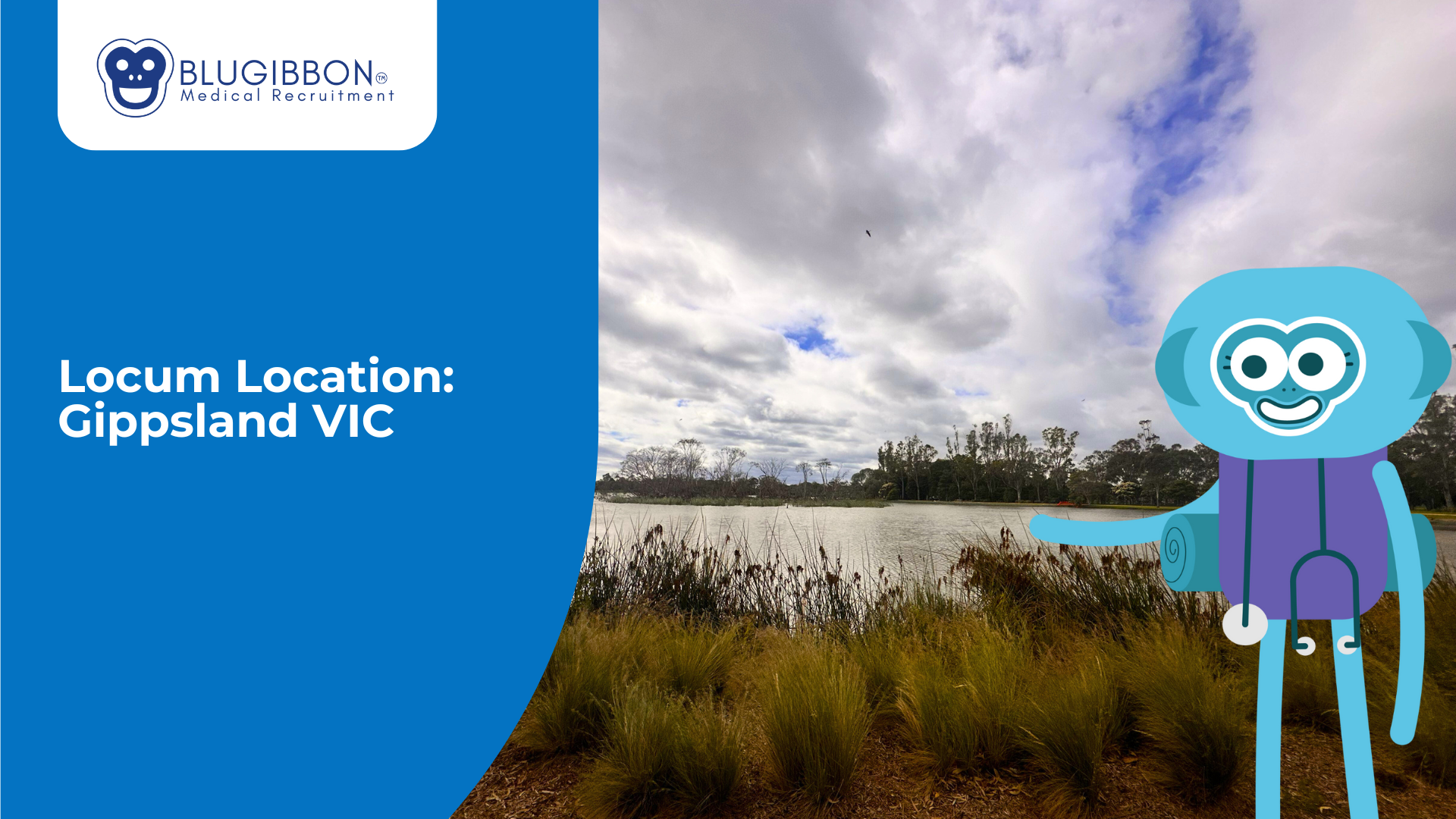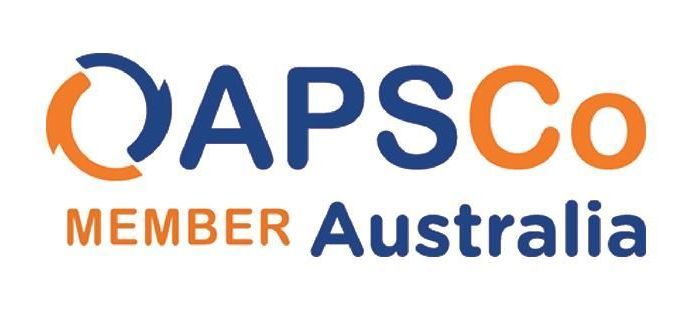April 18, 2022
LOCUM DOCTOR IN BATHURST
By our Locum doctor in Bathurst: Dr Brent.
WHAT IS THE TEAM LIKE?
There is a fantastic medical, nursing and allied health team in Bathurst Base Hospital. Usually with five to six doctors on an early and late shift and two registrars overnight.The team consists of two full-time FACEMs, a FRACGP that is the Department Director and a supportive, fantastic NP (Nurse Practitioner). Multiple JMOs (Junior Medical Officers) are rotated out from Sydney and are usually very reliable. There is a strong team of regular FACEMS, FACRRMS and FRACGPs that do days here and there.
Locum doctors tend to love Bathurst and regularly return. Locums that may not have performed well or mutually agree it is not for them are not encouraged to return. Ensuring that the medical team that is on is usually of a high standard. It can be a little bottom heavy at times, so if you are on an incharge shift, you spend a lot of time supervising interns and RMOs (Resident Medical Officers).
The nursing staff are friendly, well-drilled, conscientious and supportive of locum doctors. They are easy to get along with and fit in with the team and physios are available for ED consults in hours who also take their own patient load.
TELL US ABOUT THE SETUP OF THE HOSPITAL AND SUPPORT FOR LOCUM DOCTOR IN BATHURST?
Like many regional NSW Health facilities, the population has outgrown the department and the department could do with some modernisation.
The ED consists of 1.5 resus beds (well 2, but Resus 2 is a converted monitored bed without the extra room), 8 monitored beds, 2 isolation rooms, 1 psych room, an eye and ENT room, an “assessment room”, 2 Rapid assessment and treatment rooms and a 4 bed short stay/overflow unit.
There are supportive inpatient teams such as ICU, Gen Med, Gen Surg, O+G, Paeds and Ortho onsite during routine hours. The ICU registrar is on site 24/24, Gen Med and Paeds registrars are on site until 2300 and the other teams operate on call back. Ortho do not do on call after 1530 and most patients require transfer to Orange. Additionally getting a psychiatry consult / review / input can be a challenge at times, especially for under 18s.
THere is a CT, X-ray and path onsite until 0000 then on call back and ED and ICU cover ward calls overnight. Due to its busy nature the department occasionally can be blocked with patients waiting up to 24 hours for a ward bed.
It can be a challenge transferring patients to Orange with wait times of up to 72 hours. Common whilst inpatients from smaller hospitals will be brought to Bathurst by vCare. Despite bed blockages and ED overcrowding and without having been discussed with inpatient teams first.
Generally it is easy to settle into Bathurst, the town and the hospital. If you have not worked for NSW Health before then the orientation to the IT system is a fair bit of a drag so factor in a full day to get through the myriad of certificates required.
Accommodation is generally at the Grange, an 1870s home converted to “serviced” apartments. A short walk up the hill from the hospital.
The Grange is probably not family friendly. I am not sure if they have any two bedroom apartments. But the rooms that I have stayed in have been studios.
It is recommended to be safety conscious in this part of town. Some local friends have mentioned to be extra cautious after dark. If you can drive back from the hospital then that is recommended.
Generally it is easy to settle into Bathurst, the town and the hospital. If you have not worked for NSW Health before then the orientation to the IT system is a fair bit of a drag so factor in a full day to get through the myriad of certificates required.
WHAT DOES THE TRAVEL AND ACCOMMODATION LOOK LIKE FOR A LOCUM DOCTOR IN BATHURST?
It is recommended to be safety conscious in this part of town. Some local friends have mentioned to be extra cautious after dark. If you can drive back from the hospital then that is recommended.
Regarding travel, I drive from rural Victoria and visit family in Cowra on the way. It is worth noting for those coming from Victoria that there is a very convenient flight from Essendon Airport to Orange. That is much better than flying Melbourne-Sydney-Bathurst. Orange Airport is about a 30 minute drive to Bathurst and rental cars are available from Orange Airport. There are flights elsewhere from Orange, so consider taking this route
If you are a cyclist, then Bathurst is a great place for you. I have been told that there are some awesome Mountain Bike trails, but I am yet to bring mine.
The road cycling is phenomenal (probably the second best place I have found to ride in Australia after Adelaide / Adelaide hills / Barossa / McLaren Vale). Recently retired pro-rider Mark Renshaw has returned home to Bathurst. And has done a great job getting the riding scene happening. There are friendly bunch / shop rides on Tuesday, Thursday and Friday mornings and an active racing scene on the weekends. Drop into Renshaw’s Pedal Project on Durham Street on arrival for further details.
Park Run is big here with 300 people and well contested. They are a great group of people. Boundary Road Reserve is great for trail running. And there are lots of shared paths around town for jogging and cycling.
Make sure you walk / run / ride around the Mount Panorama track at least once during your visit.
For families, the Train Museum has Australia’s largest H0 train set. And a room with a massive Brio train kit for the kids to play with. My two-year old “Choo Choo” obsessed son had the time of his life here!
If wine is your thing, there are a whole bunch of wineries over in Orange if you have a day off.
Alternatively, the Jenolan Caves and the start of the 6ft track are about an hours drive back towards Sydney. If you fancy some trekking on a day off.
ANY LOCALS INSIDE INFO TO SHARE? BEST SWIMMING SPOTS? LOOKOUTS? BIKE OR WALK TRAILS?
The road cycling is phenomenal (probably the second best place I have found to ride in Australia after Adelaide / Adelaide hills / Barossa / McLaren Vale). Recently retired pro-rider Mark Renshaw has returned home to Bathurst. And has done a great job getting the riding scene happening. There are friendly bunch / shop rides on Tuesday, Thursday and Friday mornings and an active racing scene on the weekends. Drop into Renshaw’s Pedal Project on Durham Street on arrival for further details.
Park Run is big here with 300 people and well contested. They are a great group of people. Boundary Road Reserve is great for trail running. And there are lots of shared paths around town for jogging and cycling.
Make sure you walk / run / ride around the Mount Panorama track at least once during your visit.
For families, the Train Museum has Australia’s largest H0 train set. And a room with a massive Brio train kit for the kids to play with. My two-year old “Choo Choo” obsessed son had the time of his life here!
If wine is your thing, there are a whole bunch of wineries over in Orange if you have a day off.
Alternatively, the Jenolan Caves and the start of the 6ft track are about an hours drive back towards Sydney. If you fancy some trekking on a day off.
TOWN AMENITIES? SHOPS, COFFEE TIPS FOR A LOCUM DOCTOR IN BATHURST?
The George, Church Bar and Jack Duggan’s Irish Pub are good for a drink. For a supermarket, avoid the big names and head to Bernardi’s where this is fantastic fresh produce! (There are also of course Woolworths, Coles and Aldi in central Bathurst.)
The town has both a Kmart and a Big W.
WOULD YOU GO BACK TO WORKING AS A LOCUM DOCTOR IN BATHURST?
I spent most of the first COVID lockdown in Bathurst. Working two weeks on, 10 days off for three months and loved my time here. I have recently returned for another two week stint. And although the department is much busier and they have lost their fast track area to psych. It is still a very enjoyable place to locum.There is a lot going on in Bathurst to fill your down time. Good cafes, restaurants and bars. Also plenty of museums and shops and excellent cycling and running opportunities.

Recent Posts

Below is your complete 2026-2027 medical recruitment calendar for interns, RMOs, registrars, IMGs, GPs, and specialist trainees. Clear, updated, and written for doctors who want fast, accurate information without fluff Search-friendly terms including doctor jobs Australia, RMO applications, medical recruitment 2027, IMG doctor pathways, GP training dates, specialty training 2026.
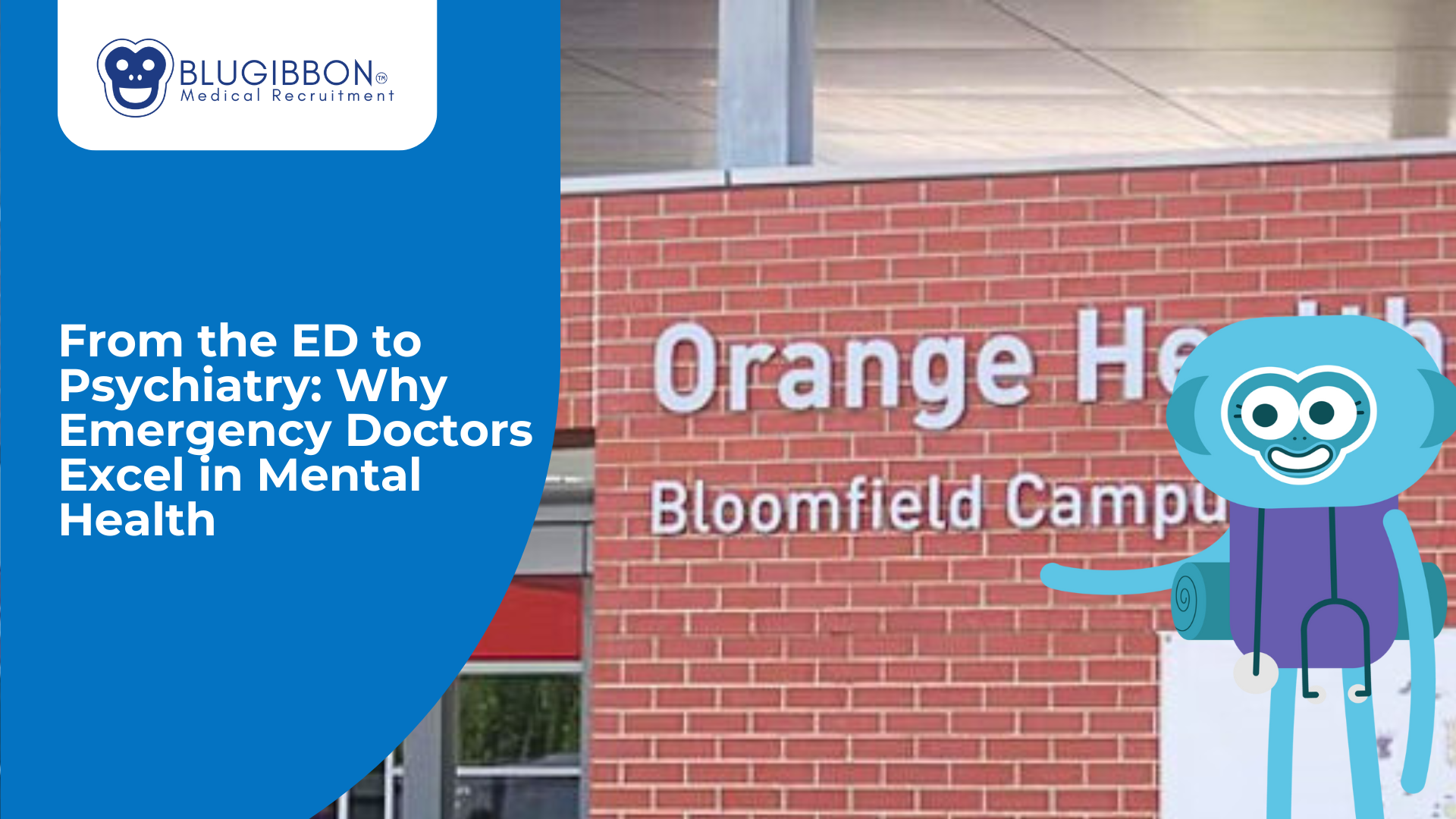
Hi, it’s Jay from Blugibbon. I’ve worked in psychiatry recruitment for more than eight years, and since relocating to Australia, I’ve noticed something that keeps coming up. Emergency doctors make outstanding psychiatrists. It isn’t a one-off observation. I’ve seen it repeatedly in hospitals across the country. The core skill set of an emergency physician translates naturally into psychiatry, particularly in crisis care and acute mental health settings. If you want an inspiring example, listen to Dr Katie Treble on ABC Conversations as she shares her journey from emergency medicine to psychiatry. It’s a brilliant insight into what this transition can look like in real life.


